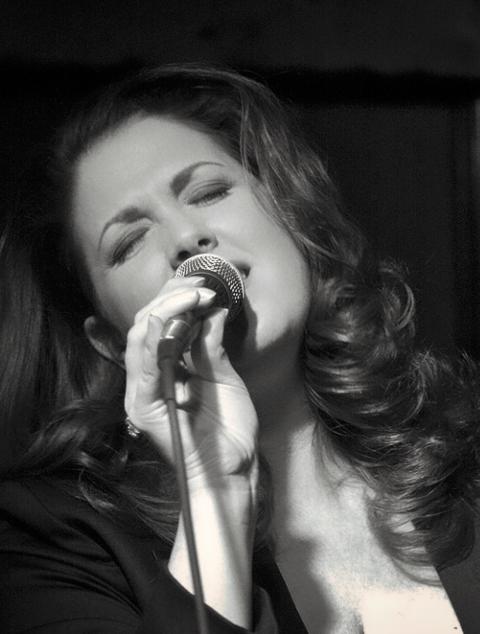April Hall
For media inquiries, please contact Media Relations
April Hall is the consummate jazz vocalist, combining her deep roots in gospel and blues with a soulfulness and jazz sophistication that shines through in every swinging performance. Her voice, described as “glorious” by the Boston Globe, is an instrument of richness and versatility, capable of ranging from the purest whisper to the most powerful delivery. Hall’s performances are always centered on bringing every song to life through emotional interpretation, playful phrasing, and rock-solid rhythm. As Jazz Times Magazine says, “The exquisite, soulful vocals of April Hall deliver every lyric with emotion and conviction.”
Hall graduated from Berklee College of Music, where she received the prestigious Louis Armstrong Performance Award. She has done projects for Atlantic Records under the direction of Arif Mardin; for Chaka Khan, Melissa Manchester, and Bette Midler; and has performed with Rosemary Clooney, Al Jarreau, Billy Joel, Helen Cornelius, and Dinah Shore. Hall performs and records with New England’s finest musicians, including Tim Ray, Gray Sargent, Les Harris Jr., Tom Hall, and Joe Barbato, among many others. She was executive producer for ImprovLive 365, a daily web series dedicated to exploring creativity and improvisation, and co-produced the Brandeis University Improv Festival, featuring Milford Graves. An award-winning songwriter, she's a member of the voice faculty at Berklee College of Music, where she also teaches ear training, the jazz and R&B ensembles, and music theory for vocalists.
- Leader of her jazz group, the April Hall Quintet, who recorded three internationally recognized CDs: Room for Two, Fun out of Life, and Something Like That
- Room for Two named to the Top 50 Jazz Records by Jazz Times Magazine
- Artistic director and curator for the Brandeis Improv Festival
- Producer for ImprovLive 365, an improvisational web series
- Background work with Bette Middler, Chaka Kahn, Melissa Manchester, and Al Jarreau under the direction of Arif Mardin at Atlantic Records, as well as with Helen Cornelius, Rosemary Clooney, and Dinah Shore
- Featured on over 20 recordings
- Lead vocalist and front person for Boston's nine-piece classic R&B band Soul Kitchen
- Featured in Jazz Times Magazine, All About Jazz, the Boston Globe, Cadence Magazine, and The Village Voice, among many others
- Featured on Boston's Women in Music series, on The Coffeehouse, WGBH’s Eric in the Evening and the nationally syndicated Jazz After Hours with PRI's Jim Wilke
- Winner of American Songwriting Magazine's lyric contest
- Winner of Song Lounge Magazine's songwriting competition
- Recipient of the Louis Armstrong Performance Award, Berklee College of Music
- Recipient of the United States Choral Award, Soprano

